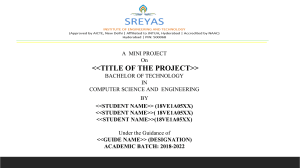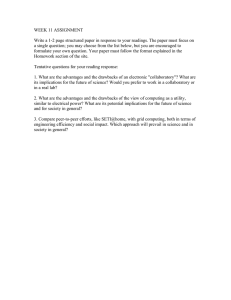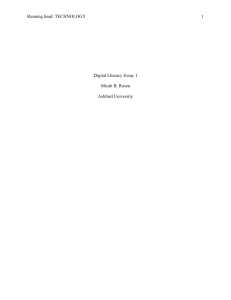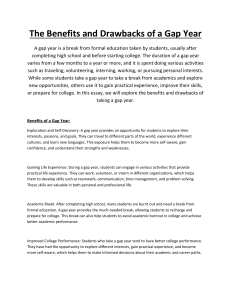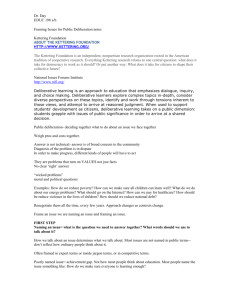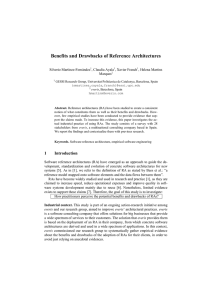High Performance Management_M02_Team
advertisement
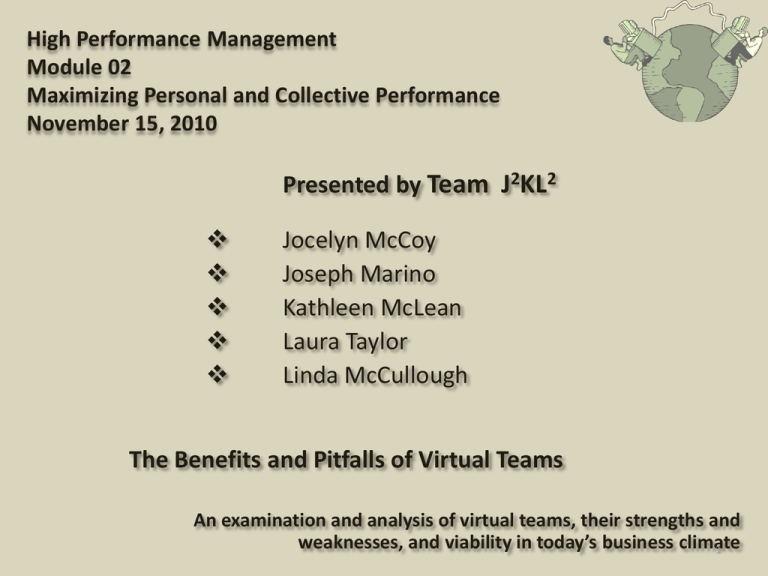
High Performance Management Module 02 Maximizing Personal and Collective Performance November 15, 2010 Presented by Team J2KL2 Jocelyn McCoy Joseph Marino Kathleen McLean Laura Taylor Linda McCullough The Benefits and Pitfalls of Virtual Teams An examination and analysis of virtual teams, their strengths and weaknesses, and viability in today’s business climate 1 Virtual teams are geographically dispersed work teams, whose members are interdependent and share responsibilities for outcomes. The team members must collectively manage their relationships across organizational and geographical boundaries. They must also be able to expertly communicate through technological means with little or no face-to-face interactions. Virtual team members must have a shared understanding of tasks, and be willing to develop mutual skills for bridging the gap between varied disciplines and backgrounds. Integrating various parts of organizational knowledge and establishing trust in the group’s ability to deliver value and develop substantive results, the virtual team must establish the level of risk each member is willing to take to obtain the needed results. Virtual team members must be self-motivated and the team must regulate its members, spanning possible diverse cultural differences. By creating a virtual meeting space and exploring each member’s competencies and weaknesses, a virtual group can maximize the outcome of its work. The key ingredients for success are the members themselves, who must be adept and comfortable with communication technology, self-directed, have good interpersonal skills, be competent in the knowledge area each is expected to work in, and be trustworthy. 2 Communication Plan Cont’d Deadlines 4 5 Continued 6 The Power of Virtuality Continued 7 The Power of Virtuality 8 Virtual Teams ~ Drawbacks and Challenges Add category of drawback or challenge one Two Three Four Five Six Seven Explanation of above – continue on next page Continued 9 Drawbacks challenges continued Virtual Teams ~ Drawbacks and Challenges Continued 10 Drawbacks challenges continued Virtual Teams ~ Drawbacks and Challenges Continued 11 Side by Side Evaluation of Virtual Teams Value Drawback Good thing Really good thing Best thing Bad thing Other bad thing Worse thing 12 Solutions to Virtual Team Drawbacks Continued 13 Solutions to Virtual Team Drawbacks Continued 14 References • Furst, S.A., Reeves, M., Rosen, B. and Blackburn, R.S. (2004). Managing the Life Cycle of Virtual Teams, Academy of Management Executive, Vol. 18, No. 2: 6-20. • Ibarra, H. and Hunter, M. How Leaders Create and Use Networks, Harvard Business Review, January 2007, Vol. 85,Issue 1, 40-47. • Johnson, P. et. al. (2001) The Wonderland of Virtual Teams. Journal of Workplace Learning. Vol. 13, Issue 1, 1-24. 15

